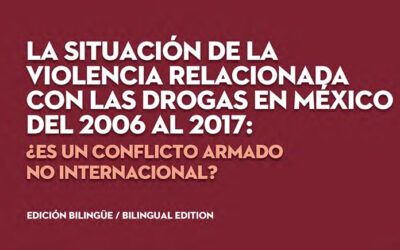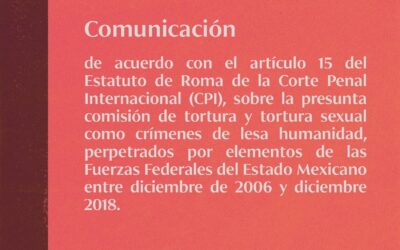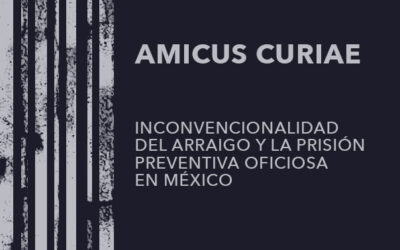CMDPDH intervention – CND thematic discussions on UNGASS implementation
Chapter 3: Operational recommendations on Supply reduction and related measures; effective law enforcement; responses to drug-related crime; and countering money laundering and promoting judicial cooperation
The security strategies implemented by many Latin American governments in order to fight the cultivation, trafficking and possession of drugs, has had damaging effects on the enjoyment of human rights in the region.
In theory, according to the drug control regime, the scarcity of drugs would increase their prices and as a result, it would also discourage their purchase. Despite the numerous and high cost efforts by the international community to implement this policy, the objective to achieve “societies free from drugs” is far from reality.
National and international evidence shows that policies introduced to prohibit and penalize the cultivation, sale and use of drugs are disproportionate and have had no effect on the eradication of the production nor the problematic use of drugs. On the contrary, the collateral consequences of the prohibitionist policies have been profoundly damaging.
In Mexico, the impact of the international drug control regime has been devastating. Since 2006, when a frontal war against organized crime was declared, violence, insecurity and corruption have increased at an alarming rate.
There is increasing evidence which suggests that torture, enforced disappearance, arbitrary executions and forced displacement, are a result of the security policy implemented in Mexico based on the deployment of armed forces to exercise public security tasks without any civilian control.
In order to initiate a serious debate about the design of new public policies that regulate drug use, it is paramount to recognize the failure of the model which places the reduction of the supply as a priority, as it has rather contributed to the increase in violence, to human rights violations, and the weakening of the rule of law in the countries most affected by drug production and trafficking. These lessons should help us to create new policies that try to combat the roots of the problem, that clearly distinguish between the use and the problematic use of substances, as well as its different impacts on health.
In Mexico, the security strategies in order to reduce the supply and demand of illicit drugs, have been implemented without clear indicators of their impact on consumption. On the contrary, the actions engaged to combat drug trafficking have proved to be unsustainable in the long term as they ignore national borders, operational capacity and diversification of the organized crime. In other words, the
eradication of drugs does not impede its cultivation in other parts of the country. Detaining a leader of an organized criminal group does not affect the operation or fragmentation of the drug cartel, nor does it impede the growth of a new one. Furthermore, drug seizure and the identification of distribution routes, fails to limit the growth of new routes and forms of transportation.
Taking into account the human rights problems that many countries in Latin American are currently facing, we call for the reformulation of their national security policy against drug trafficking, which places the human rights respect as their main priority.





